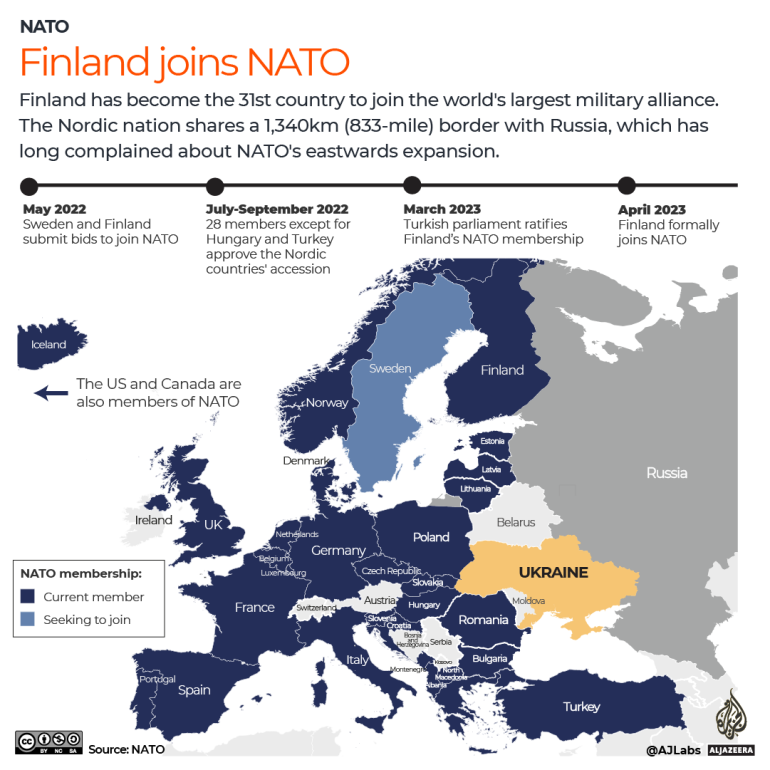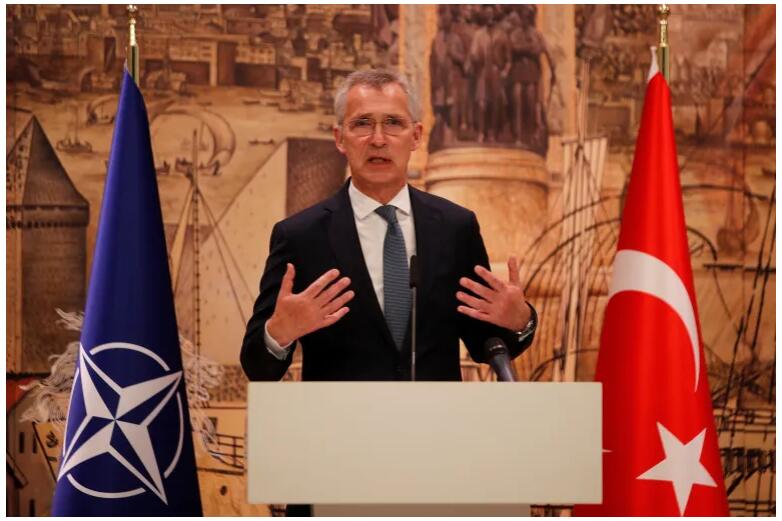NATO chief Jens Stoltenberg has urged Turkey not to veto Sweden’s bid to join the military alliance, ahead of a meeting this month to try to overcome objections delaying Stockholm’s membership.
“Membership will make Sweden safer but also make NATO and Turkey stronger,” Secretary-General Stoltenberg told journalists in Istanbul on Sunday after meeting Turkish President Recep Tayyip Erdogan and his newly appointed foreign minister, Hakan Fidan, the former head of the intelligence agency.
“I look forward to finalising Sweden’s accession as soon as possible,” Stoltenberg added.
Officials from Turkey, Sweden and Finland will meet next week to attempt to resolve the issues that have delayed Sweden’s NATO membership, said Stoltenberg, referring to the permanent joint mechanism set up to address Turkey’s concerns about Sweden and Finland.
In March, Turkey ratified Finland’s bid for membership, and it became NATO’s 31st member in April.
All 31 member countries must ratify a candidate’s accession protocol for it to join the transatlantic alliance.
Turkey’s government accuses Sweden of being too lenient on “terrorist” organisations and security threats, including Kurdish groups and people associated with a 2016 coup attempt. Hungary has also delayed its approval, but the reasons why haven’t been made publicly clear.
“Sweden has taken significant concrete steps to meet Turkey’s concerns,” said Stoltenberg, noting that the country has amended its constitution, strengthened its anti-“terror” laws, and lifted an arms embargo on Turkey since it applied to join NATO just over a year ago.
NATO wants to bring Sweden into the fold by the time United States President Joe Biden and other leaders meet in Lithuania on July 11-12.
Fearing they might be targeted by Moscow after Russia invaded Ukraine last year, Sweden and Finland abandoned their traditional positions of military non-alignment to seek protection under NATO’s security umbrella.

As Stoltenberg held talks in Istanbul, hundreds of people, including dozens of pro-Kurdish protesters, gathered in Stockholm to demonstrate against Sweden’s planned NATO membership. Up to 500 people took part in the “No to NATO – no Erdogan Laws in Sweden” protest.
They rallied under the banner of the “Alliance Against NATO,” an umbrella for Kurdish organisations, leftist groups, anarchists, youth and climate activists and people opposed to Sweden’s new “anti-terror” laws, which took effect on June 1, as well as those calling for free media.
In January, a protest in Stockholm involving the burning of a copy of the Quran brought Sweden’s membership talks at NATO to a grinding halt, after Erdogan suspended the meetings. The incident led to anti-Sweden demonstrations around the Muslim world.
Stoltenberg appeared to suggest that the protests might have been raised during his talks.
“I understand it is hard to see demonstrations against Turkey and against NATO in Sweden,” Stoltenberg said. “But let me be clear, freedom of assembly and expression are core values in our democratic societies. These rights must be protected and upheld.”
On Saturday, Stoltenberg attended the inauguration in Ankara of Erdogan, who was re-elected to serve a third presidential term and another five years in office.

